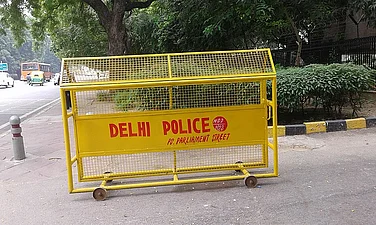India and the UK signed an agreement to recognise each other's higher education qualifications, in a move that is in sync with a 10-year-roadmap to significantly expand overall bilateral ties.
The announcement about the pact, which is set to benefit thousands of young people in both countries, was made by the British government on Thursday.
"The MoU, part of the UK-India Enhanced Trade Partnership (ETP) agreed by Prime Minister Boris Johnson and Prime Minister Narendra Modi last year, means A-levels and their equivalents, undergraduate and postgraduate degrees will now be recognised in India," it said in a statement.
It said the two sides also signed MoUs implementing ETP commitments to create a task force to provide opportunities for Indian nurses and nursing associates seeking to train and work in the UK's National Health Service.
The UK's Department for International Trade said the Memorandum of Understanding (MoU) on higher education will allow Indian students who graduate from British universities to apply for postgraduate qualifications or embark on government careers that require university qualifications when they return home. The UK and India are already important destinations for each other's students. In 2020-21, the UK received 84,555 Indian students, according to official data.
"The agreement will make UK universities even more appealing to Indian applicants and is likely to provide an economic boost, as the benefit to the UK of welcoming non-EU students is estimated by industry to be around 109,000 pounds per person," the statement said.
It said the pact will also increase the potential for UK nationals to travel to India to study, allowing them more choice and broadening their academic and educational horizons, as well as opening the door for institutions to create courses that can be delivered in both countries.
"Now, we are delighted to deliver on our promise to unblock barriers to trade between our two nations and make UK higher education even easier to access and more appealing to Indian students," International Trade Secretary Anne-Marie Trevelyan said.
UK's Secretary of State for Education James Cleverly said the UK universities are rightly the "envy" of the world and international education is one of the country's "finest exports".
"This agreement builds on our UK-India partnership and removes barriers so even more of the best and brightest students from India can study here, boosting our economy and enriching our campuses and communities," he said.
"It creates more opportunities for UK students to study in India, and paves the way for our world-beating universities to deliver more degree programmes in one of the fastest-growing and most dynamic nations on earth," he said.
Vivienne Stern MBE, Chief Executive, Universities UK International (UUKi) described the pact on educational qualifications as a "landmark, historic agreement.
"Qualifications students receive will be recognised on both sides, making it easier for students to progress in education and move into jobs," he said.
"The recognition of UK Masters' is a particularly important development. It means that Indian graduates of the UK's outstanding universities will receive formal recognition of their outstanding achievements and full access to jobs in the public sector in India," he added.
The India-UK relationship was elevated to a Comprehensive Strategic Partnership during the India-UK virtual summit held between Prime Minister Modi and Prime Minister Johnson in May last year.
At the summit, the two sides adopted a 10-year-roadmap to expand ties in the key areas of trade and economy, defence and security, climate change and people-to-people connections among others.
(With PTI inputs)




















.png?w=200&auto=format%2Ccompress&fit=max)





